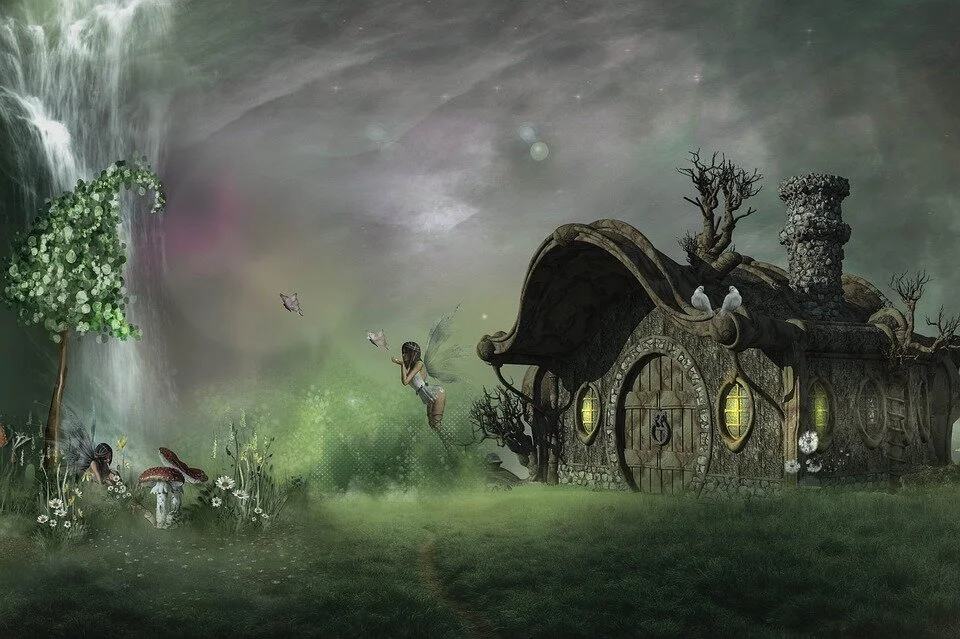Writing Christian Fantasy Without Magic
Did you know there are three different types of Christian Magic Systems? YES, there are!
First, I want to begin by saying that I don’t mean ‘magic’ in a traditional sense. I’m not talking about witchcraft and whatnot, by ‘magic’ I simply mean supernatural powers/abilities—these don’t have to have anything to do with ‘magic’ whatsoever. In fact, in Christian fantasy/sci-fi, our powers aren’t magical at all. They come from God and are in fact the power of God.
So, from this point forth, I will refer to our ‘magic system’ as a power system.
The Lord Jesus blessed me to sit down and categorize as many different forms of superpowers/abilities as I could into just THREE different systems that can be applied specifically to Christian fantasy/fiction.
If you aren’t familiar with power systems, or need to brush up on the subject, I highly recommend reading through my other articles, Writing a Hard Magic System, and Writing a Soft Magic System. Click the titles to begin reading.
Christian Fantasy [CF] is my favorite genre, we’ve discussed it quite a few times here on the blog—Writing Christian Fantasy and Worldbuilding Christian Fantasy are two of my favorite articles on the subject. But today we’re going to explore superpowers/abilities. How do you weave this into your writing as a Christian author?
I believe fantasy was made for CF—it is the only place where the true power, majesty, and wonder of our Father God can really shine. What better place to demonstrate the extent of the power of Jesus Christ? What better place to truly show off the fantastical beauty of our faith?
It isn’t uncommon for Christian fantasy to include elements of supernatural abilities—we’ve all heard of Chronicles of Narnia and Lord of the Rings, but you can find other examples of CF on this list of good Christian fiction I composed last year, click here to read it. Faith is a really good way to incorporate powers because it immediately tells readers what to expect.
Do your characters worship the god of fire? No surprise when they start shooting flames from their fists.
Does your story take place in a city oppressed by users of dark powers?
Does your main character come from a temple dedicated to honoring Jehovah Rapha (the God of healing)? No surprise when powers of healing manifest in your protagonist.
The thing about fantasy that makes it so exciting is the idea that truly anything is possible. Yet, for some reason, people seem to forget this fact when they pick up Christian fantasy. In a faith where we serve a God of all power, why isn’t anything possible?
Christian publishers seem to have fallen into a box when it comes to fiction—they are no longer interested in publishing works as adventurous as Lord of the Rings, or as imaginative as Chronicles of Narnia. For some reason, Christian publishers and agencies have become convinced that Christian fantasy cannot be as immersive, as open-world, or as creative as secular fiction and that’s simply not true.
Having Christ as the center of your work does not mean you need to tell a certain narrative. There is more to Christian fiction than yet another story of salvation, yet another romance, or some other less interesting rehash of Left Behind.
Power systems are the same across secular and Christian fiction—the only thing that truly changes is the source of the power.
In Frostblood, children are born with abilities to manipulate ice or fire.
In The Young Elites children developed strange abilities after surviving a serious illness.
In Red Queen, children born with silver-colored blood also possessed superhuman skills.
In each of these bestsellers, the power system is based on a human condition—you are either born that way, or your supernatural abilities developed after a naturally occurring illness.
With a Christian Power System, you won’t need an illness or a birthright to determine your abilities—your powers will simply come from God.
There are a couple different ways you can incorporate this idea. The first is used in the popular series, Children of Blood and Bone. Characters in this story are born with white hair, which symbolizes their ability to use magic. In this story, magic is a gift from the gods; certain gods give you certain magical abilities and the more you worship that god, the stronger your abilities will be. The interesting thing about this book is that the magic system is actually based on existing deities from African mythology.
That being said, Children of Blood and Bone is, quite honestly, religious fiction.
In our society, we don’t think of these sorts of books as religious fiction—we don’t even think of Chronicles of Narnia as religious fiction. Maybe that’s because western religions are so different from African mythology that we don’t interpret those sets of beliefs as “religious,” or maybe its because Chronicles of Narnia is very subtly Christian—hidden, is the word I’d use to describe it. Whatever the reason, its very interesting to see how cleverly these very real religious beliefs were woven into this fantasy novel and so easily accepted by society as just another work of fiction. It begs the question, why is Christian fantasy treated so differently?
I can’t answer that question—and even if I could, that’s a topic for a completely different article.
Children of Blood and Bone uses a style of religious writing that I like to nickname, Gifting. This Christian Power System [CPS] happens when you acknowledge God as the source of your power and use worship as a way to strengthen your abilities.
Think of it this way:
Gifting comes from God—it is a gift from God to humanity. The more you worship Him, the stronger your abilities will be. This CPS is often used in books with Hard Magic Systems. You can even break it down into categories.
Healing powers come from Jehovah Rapha (God of healing)
Enhanced fighting abilities come from Jehovah Nissi (God of banners (as in, the bannermen of war))
Visual prowess comes from El Roi (the God who sees)
Some Christian authors may not want to break down powers according to the Names of God because it may insinuate that there are many gods instead of one Triune God, but that can easily be explained and clarified through your writing.
The next Christian Power System I want to suggest is something I call Inherited. This CPS centers on characters being born with supernatural abilities because of their relation to a particular spiritual being.
Inherited Power develops through blood relations and is often incorporated into books with Soft Magic Systems.
Characters are often descendants of Priests, distant relatives of famous biblical figures, or possess supernatural abilities because they are Children of God—i.e., part god, demigod, etc.
Powers can depend on bloodline—descendants of King David are warriors with exceptional strength and skill, descendants of King Solomon are wise beyond their years, etc.
The last Christian Power System I want to suggest is something I call Existential. In this CPS, the abilities simply exist as a force that can be used by anyone. Like “regular” powers, you can use it to call down curses or make life a little easier. Your strength comes from your faith. The more faith you have, the stronger your power will be. This system can be used in Hard or Soft Magic Systems and can even be combined with the other Christian Power Systems.
Characters can learn powers or be born with abilities.
Supernatural abilities can be incorporated into worldbuilding.
Concepts of light and dark power can be explored, allowing room for “good versus evil” plotlines.
I hope these three Christian Power Systems have opened your eyes to some of the things that are possible in Christian fantasy. You don’t have to wait around, hoping that someone will someday write a really amazing Christian book—get up and write it yourself! Use one of these Christian Power Systems or create your own—pray about it and get out there and spread the Gospel! You’ll be surprised by how many of us are waiting.
Please use the form below to subscribe to my monthly newsletter! The Rebel Christian is full of great information for Christian writers and readers alike; if you liked this article then you’ll love my others. Visit the Writer’s Block Blog to see what you can learn or explore the Archives and find something new!
Thanks so much for reading, God bless!



